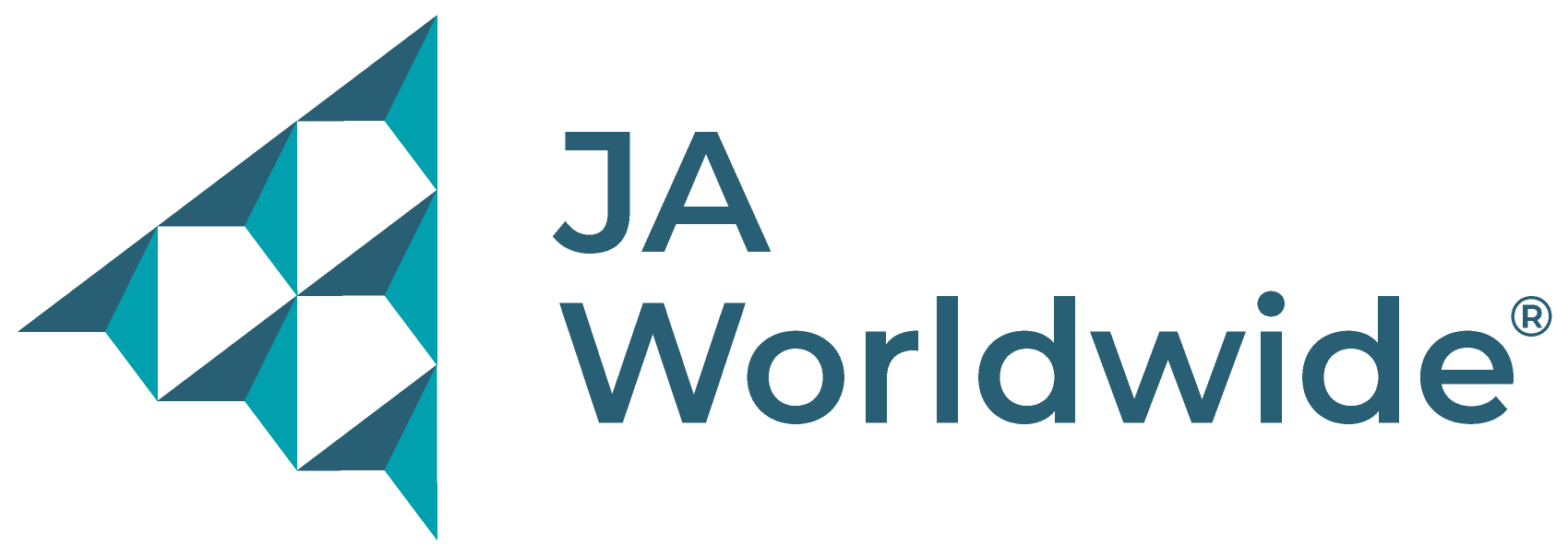Building Resilience: How JA Canada Integrates Mental Well-Being into JA Learning Experiences
October 10, 2024
In 2020, JA of Central Ontario and Z Zurich Foundation (ZZF) partnered under a banner of social equity to equip youth with essential career and transferable skills. With national demand to scale career readiness, JA Canada and ZZF expanded the partnership in 2021 to improve mental well-being and integrate mental well-being and resilience content into core JA curriculum.
JA Canada integrates mental well-being into its programs for young people to ensure they are equipped with practical skills for career success and have the emotional resilience needed to navigate life’s challenges. One of the unique features of the program offering is that JA contextualizes mental well-being as an important element of career and entrepreneurship sustainability. Recognizing that mental well-being is crucial to overall success, JA Canada aims to provide a holistic approach to education and skill development.
“Our mental well-being collaboration with Zurich Canada is directly aligned with our goal to support youth in developing the mindset for life, academic, and career success,” said Scott Hillier, CEO of JA Canada, in 2022. “We are grateful for Z Zurich Foundation and Zurich Canada's collaboration and investment.”
By integrating mental health content into JA learning experiences, students recognize its crucial role in achieving success. They learn to be mindful of their emotions, build resilience healthily, and understand the importance of creating a stress management toolkit. This approach helps students reach their educational and career aspirations while maintaining their mental well-being, ultimately preparing them for a balanced and successful future.
Calling on the Experts
While JA Canada recognized the importance of integrating mental health expertise into its learning experiences, the team knew an important element of success would be leveraging experts in youth mental health. To address this, they engaged advisory groups from renowned organizations, including The Hospital for Sick Children in Toronto, the Mental Health Commission of Canada, Kids Help Phone, and School Mental Health Ontario, providing valuable insights and guidance.
These experts emphasized the need to reframe the concept of resilience for young people. They noted that resilience is often misunderstood as simply being strong and pushing through challenges, which can be counterproductive. Instead, they emphasized that true resilience involves acknowledging and processing emotions, taking time to reflect, and gradually building strength through overcoming difficulties.
The advisory group also recommended JA Canada focus on their core expertise: skill building, and the importance of developing transferable skills for career success and overall well-being. This approach ensures that individuals are better equipped to handle various aspects of their lives, including their mental health, educational pursuits, and career paths.
JA Central Ontario students.
Success Skills Program
The JA Canada team identified four key opportunities to incorporate mental health content into JA learning experiences, targeting work readiness and entrepreneurship curricula. The Success Skills program, which focuses on ten core transferable skills essential for career, education, and overall well-being, helps students in grades 8 to 10 identify and build a toolkit of transferable skills that will enable them to increase resilience and improve outcomes through challenging situations.
As an extended learning for students and educators, JA Canada developed a series of success webinars where professionals and JA alumni share their personal stories, highlighting the significance of skill development for mental well-being. These webinars are available in both English and French.
JA Company Program
Recognizing the high demands on young people in the JA Company Program, JA Canada developed supplementary modules focused on building entrepreneurial resilience. These modules, created with input from JA alumni, include real-life scenarios and emphasize skills like conflict management to support both business success and individual mental well-being. Students are encouraged to discuss the scenarios and consider how to leverage skills for successful outcomes. Resiliencyejournals are included for students to reflect on their journey and emotions throughout the program.
The partnership also launched a youth mental health challenge, a social media campaign featuring youth advisors sharing the importance of mental well-being. This campaign, which includes a checklist of activities to enhance mental wellness, runs at multiple points throughout the year, including during Canada’s Mental Health Awareness Week in May. Learn more about JA Canada’s JA Company Program Entrepreneurial Resilience models.
JA students at the Zurich Well-Being Summit. Photo by Henry Lin.
Success and Well-Being Summits
Success Summits, day-long field trip events, bring together students from diverse schools in grades 8 and 9. Students build positive connections and exchanges with peers and mentors and increase their understanding of mental well-being as a key factor of success in life, education, and career. Partnering with the Mental Health Commission of Canada, the summit includes a mental well-being literacy workshop, hands-on fun experiential team-building activities (including ropes courses and creative workshops), a speakers panel, and personal and community action planning.
The summits, launched in 2023 in Ontario, have expanded across the country to include British Columbia and, this year, also Quebec and Atlantic Canada. Students, educators, and JA alumni have experienced a remarkable impact. More than 75% of youth expressed that they had developed new mental well-being skills due to their participation in the summit. “I understand that mental health is key to your success,” one student shared.
Going Global
ZZF’s work and partnership with JA continue to grow. Building on relationships with JA Canada and JA Spain, ZZF also partners with JA Worldwide, JA Africa, and Prestasi Junior Indonesia (JA Indonesia), among other JA locations. Building on pilots and proof points of learning experiences like those developed in Canada, JA colleagues from around the world are collaborating. Connecting through a Global Working Group and mental well-being learning experience Teams Channel, JA staff share resources and identify ways to thread well-being education into their learning experience offerings.
Want to volunteer with JA Canada or enroll a student you know? Visit jacanada.org to find the location nearest you. To learn more, write to info@jacanada.org.


